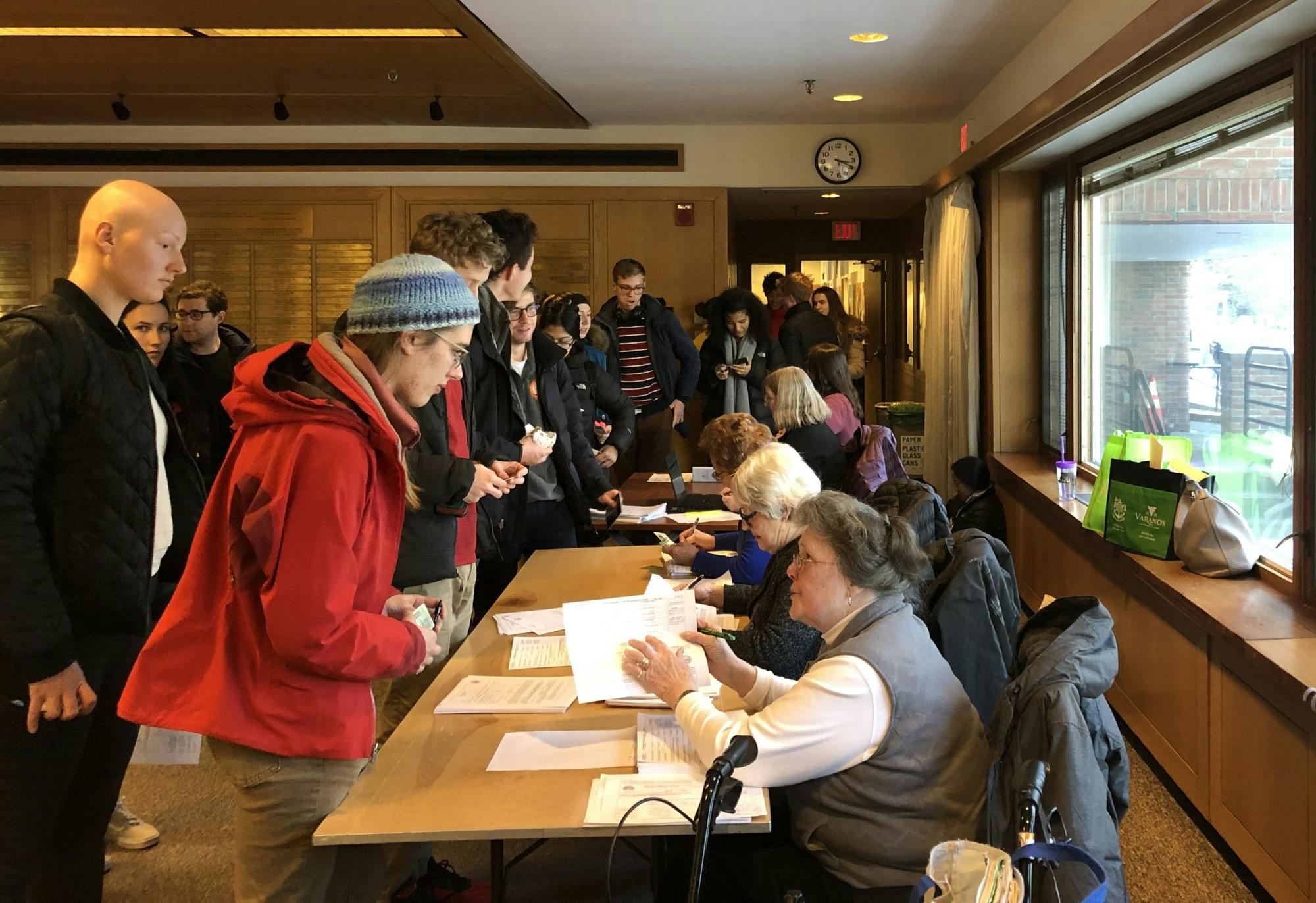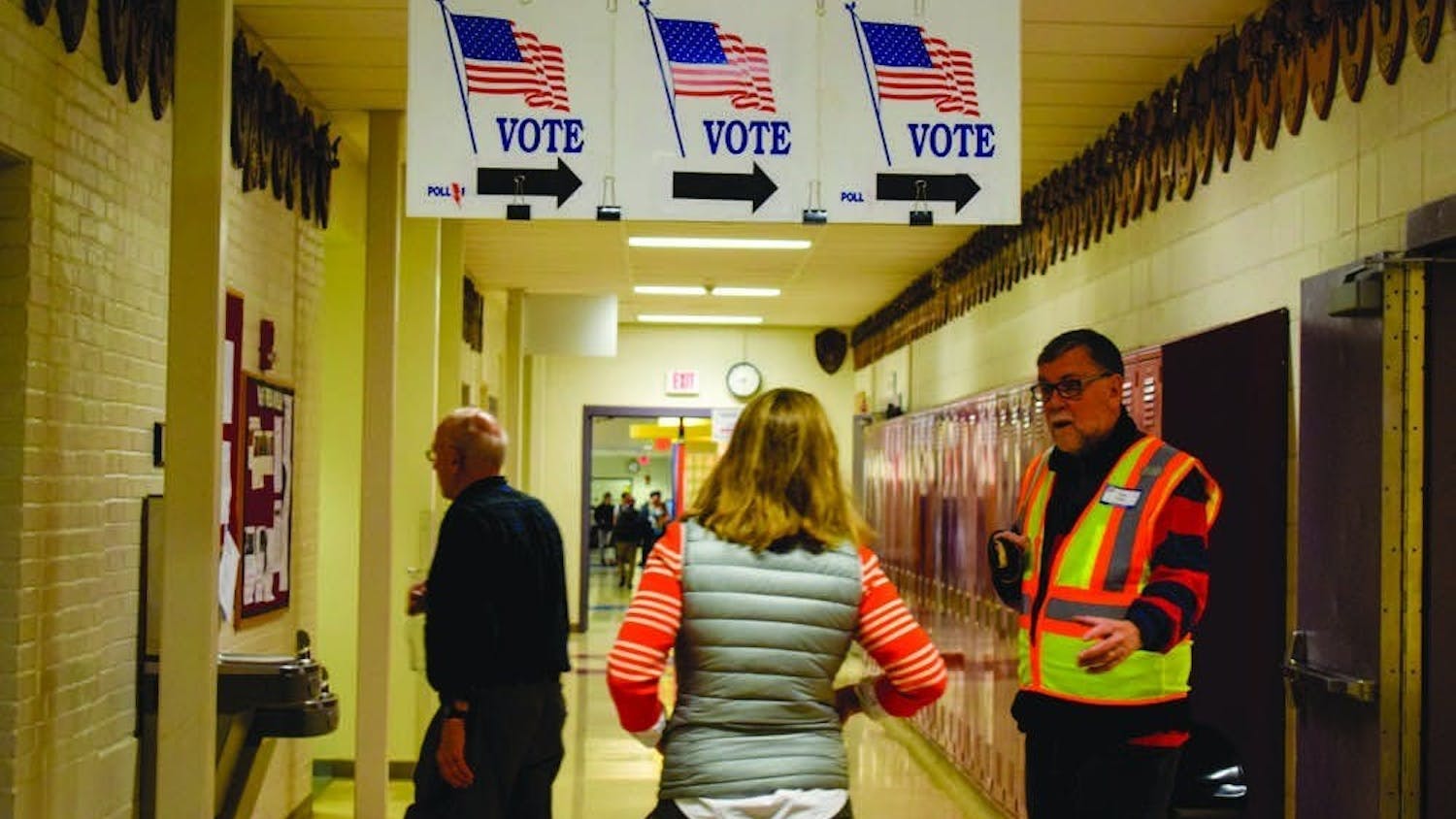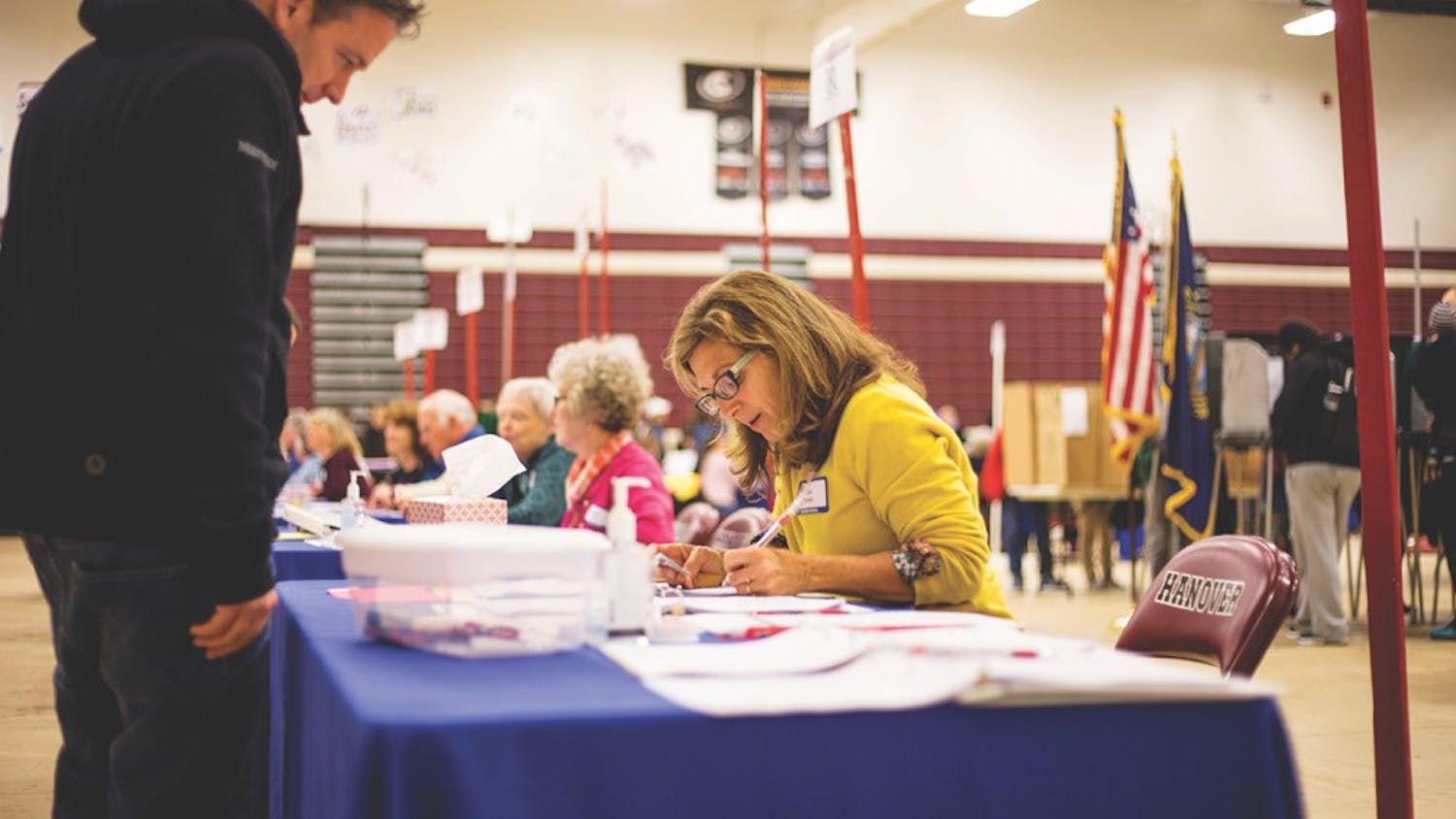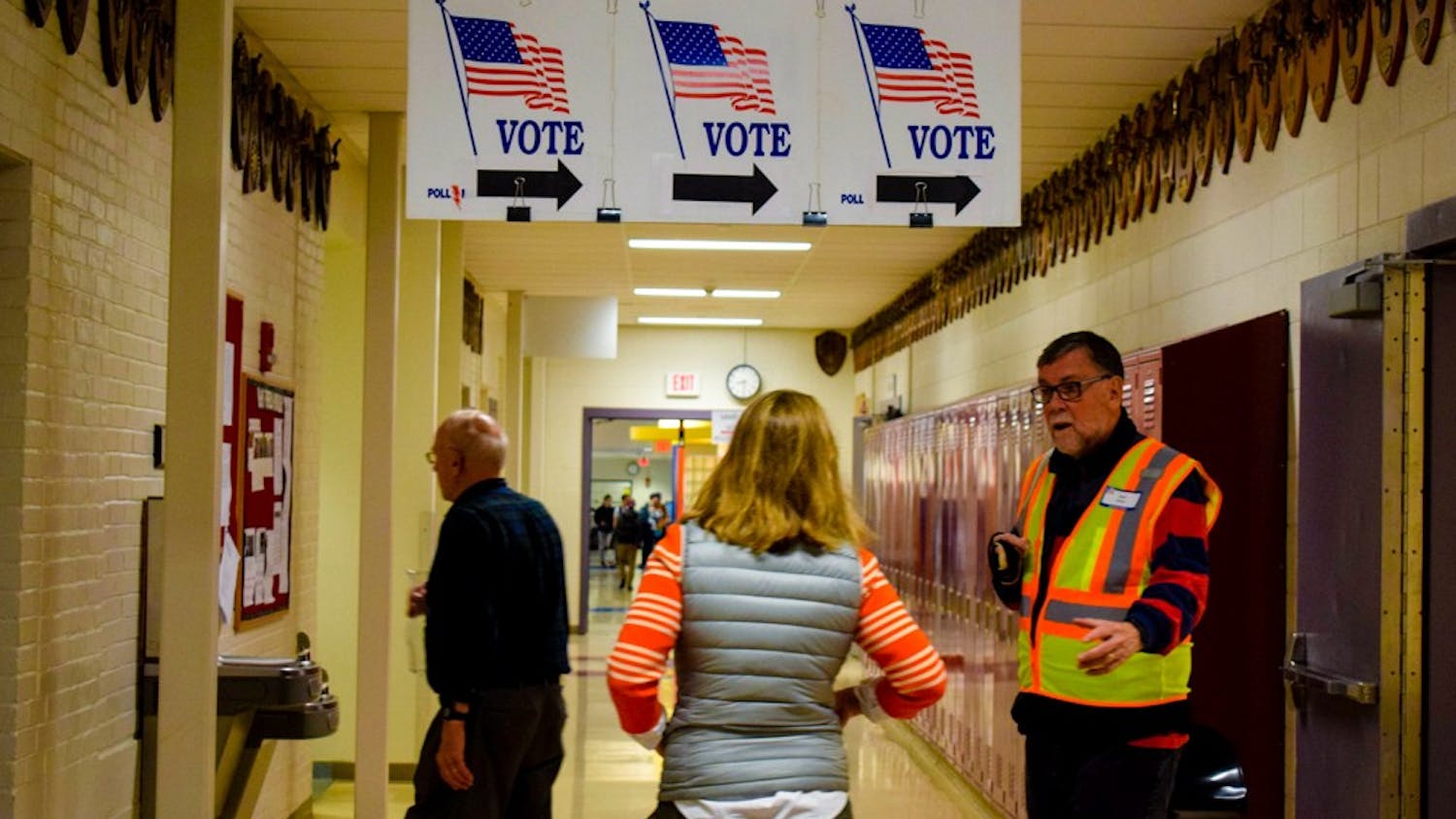Individuals seeking to register to vote in New Hampshire cannot be denied the right to do so even if they have not yet obtained a driver’s license, according to a Nov. 7 letter sent by state officials to Hanover town clerk Betsy McClain.
The letter — signed by New Hampshire Secretary of State Bill Gardner, New Hampshire Attorney General Gordon MacDonald ’83 and New Hampshire Department of Safety commissioner Robert Quinn, offered clarification on House Bill 1264, a state law signed by Gov. Chris Sununu (R) last year that changed the statutory definition of residence. Despite concerns that in order to be able to register to vote in New Hampshire, new voters — particularly college students from out of state — would have to first obtain a New Hampshire driver’s license, the letter asserts that registering to vote means an individual is establishing residency in the state.
According to the letter, the definitions of ‘resident’ and ‘residence’ hold the same legal meaning as ‘domiciliary’ and ‘domicile’ as a result of HB 1264, and because registering to vote requires that a voter establish his or her domicile, McClain said it appears as if registering to vote is therefore now a declaration of residency.
“We used to refer folks to a publication on the Secretary of State’s website prior to this law,” McClain said. “It was very clear that students in particular have the option of claiming New Hampshire as their voting domicile while still continuing legal residence in another state. This law seems to sort of — if I understand the guidance correctly — this law takes that option off the table, which means when you register to vote, you are declaring your residency.”
The letter to McClain further details that “obligations for new residents have not changed,” and that under the motor vehicle code, an individual has 60 days from the day he or she establishes residency in New Hampshire to acquire a driver’s license if they operate a vehicle in the state and the same amount of time to register a vehicle if they own a vehicle.
“It seems to be somewhat in conflict with earlier guidance that we had, which basically told us that if we received questions regarding the laws of New Hampshire other than election laws, we were supposed to convey those to the appropriate state agency,” McClain said. “The important thing is, there is absolutely no confusion, nor has there been in my mind anyway, that a person does not need a New Hampshire driver’s license in order to register to vote.”
New Hampshire does not have provisional voting, a type of voting in which a voter whose eligibility is in question is given a provisional ballot that is kept separate from other ballots and not counted until their eligibility is resolved. Regardless of any question around the law, any votes cast in a New Hampshire election by out-of-state students must be counted because those students are able to register to vote and receive a ballot.
“All votes cast are counted,” McClain emphasized. “We don’t have any provisional voting here, so all votes cast are counted.”
McClain further elaborated that the lack of a New Hampshire’s driver’s license “will absolutely not get in the way of registering to vote or casting a ballot or having that ballot count.”
This same point was emphasized by New Hampshire League of Women Voters president Liz Tentarelli, who said she does not believe that the letter sent to McClain was effective in clarifying the effects of the HB 1264 law.
“I don’t think it clarifies anything,” Tentarelli said. “I think it keeps insisting there are no changes, but if there are no changes, why did we pass the bill in 2017 with a very specific change in it? So I think it’s disingenuous on the part of the Secretary of State and the [New Hampshire] Justice Department to say that nothing has changed.”
She later referred to the letter as “a way of not addressing the situation honestly.”
Critics of HB 1264 have said that the bill constitutes a poll tax, citing the requirement that college students and others affected by the law obtain a driver’s license as an example. However, the letter states that “No one can be denied the right to register to vote or vote for failure to meet the requirements of the motor vehicle code.”
“The idea that [college students] might have to get a new driver’s license even if they still have three years to go on it in their home state is an intimidation to them as they prepare to register,” Tentarelli said. “[College students] are spending nine or 10 months a year here, they’re spending money in local stores, they’re working part-time jobs, they’re volunteering in their communities, and they really did consider it their civic domicile.”
Tentarelli also noted the possible financial problems the law could pose for out-of-state college students beyond the price of purchasing new licenses and car registrations.
“Nobody is quite sure of where they stand,” Tentarelli said. “If they register to vote, are they now residents of New Hampshire? Would that affect their scholarship from Pennsylvania or Maryland or wherever they might have gotten a scholarship if they’re now residents of New Hampshire?”
Tentarelli added that it was “not realistic” for students to have to worry about something such as the status of their scholarships while registering to vote.
Tentarelli said that she believes one of the law’s flaws is its inability to be cross-checked for enforcement.
“You are basically declaring residency when you sign that voter registration form,” Tentarelli said. “And by law in New Hampshire, residents need to get — if they drive — need to get driver’s licenses in New Hampshire within 60 days. Right now, there is no way to cross-check that. A student at Dartmouth or any other college who may have a car on campus and may be driving in New Hampshire — if he does not get a New Hampshire driver’s license — the Secretary of State and Attorney General aren’t going to know that.”
If an out-of-state student feels discouraged about voting in New Hampshire, Tentarelli said she wants students to be aware of alternative options, such as absentee ballots for their home state.
“If this law is discouraging to college students to vote in New Hampshire, but they still have ties to their home state, they should remember that they can register there and vote in that state’s presidential primary and vote in that state’s November election as well,” Tentarelli said.





